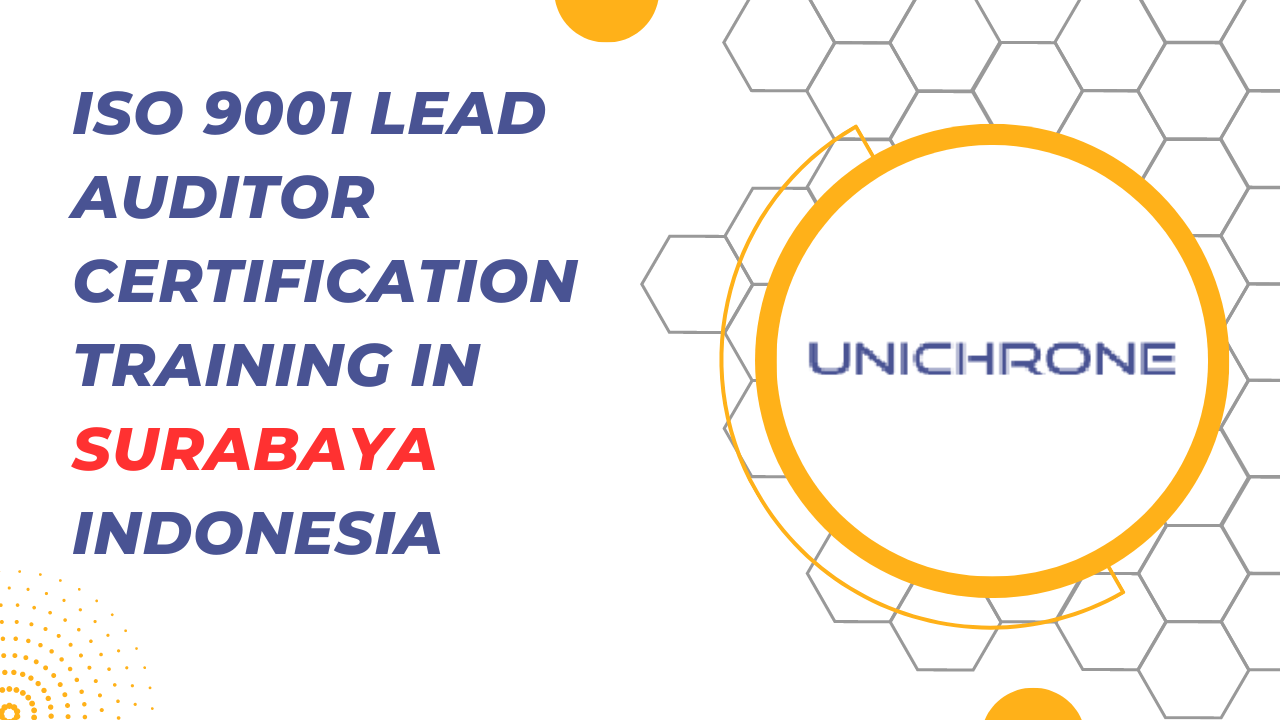In today’s competitive business landscape, where quality and compliance stand as crucial pillars, organizations are increasingly relying on robust Quality Management Systems (QMS) to ensure consistency and excellence. At the heart of this pursuit lies the ISO 9001 standard, a globally recognized framework for QMS implementation. For professionals seeking to lead the charge in auditing and ensuring compliance, an ISO 9001 Lead Auditor Certification stands as a testament to their expertise. In this blog, we delve into the significance of ISO 9001 Lead Auditor Certification Training in Surabaya, Indonesia, exploring how it unlocks new horizons for career growth and contributes to the ever-evolving field of quality management.
Understanding ISO 9001 Lead Auditor Certification
More than just a piece of paper, an ISO 9001 Lead Auditor Certification from Surabaya, Indonesia, is a tangible validation of one’s proficiency in evaluating and auditing an organization’s Quality Management System. However, it is more than that; it serves as a declaration of a professional’s unwavering commitment to upholding quality standards and ensuring regulatory compliance. The benefits of this certification are extensive, creating opportunities that can redefine a career trajectory.
Advantages of ISO 9001 Lead Auditor Certification
Diverse Career Pathways: In a job market characterized by fierce competition, organizations are actively seeking professionals adept at leading and executing audits to ensure their QMS aligns seamlessly with the ISO 9001 standard. Holding an ISO 9001 Lead Auditor Certification positions individuals as prime candidates for roles requiring a deep understanding of quality assessment and regulatory adherence.
Enhanced Employability: The certification serves as an immediate boost to employability, underscoring one’s proficiency in auditing processes. Whether aspiring for an internal promotion within the current organization or exploring new career avenues, the certification reaffirms a commitment to maintaining impeccable quality standards.
Mastering Auditing Techniques: ISO 9001 Lead Auditor Training imparts participants with a profound grasp of fundamental auditing principles and methodologies. From meticulous planning and preparation to the actual audit execution and subsequent reporting, this training equips professionals with essential skills.
A Holistic Perspective of ISO 9001 Standard: Beyond merely scratching the surface, the training ensures participants gain a comprehensive understanding of the ISO 9001 standard. This knowledge is indispensable not only for conducting audits but also for implementing and refining QMS practices within organizations.
Contributing to Ongoing Improvement: ISO 9001 is not a static standard; it thrives on the principle of continual enhancement. By becoming an ISO 9001 Lead Auditor, professionals gain insights into how the standard fuels ongoing organizational development. Armed with this knowledge, auditors can offer insightful recommendations that drive positive change within organizations.
Components of ISO 9001 Lead Auditor Certification Training
The ISO 9001 Lead Auditor Certification Training in Surabaya, Indonesia, offers a comprehensive curriculum tailored to equip participants with the tools and insights needed to excel in QMS auditing. The training modules encompass:
Foundational Understanding of ISO 9001 Standard: Participants establish a solid understanding of the ISO 9001 standard, a cornerstone for effective auditing. Auditors must be well-versed in the fundamental principles that underpin quality management systems.
Auditing Concepts and Techniques: The training delves deep into essential auditing concepts, methodologies, and techniques. This encompasses everything from meticulous planning to effective execution and communication of audit findings.
Strategic Audit Planning and Preparation: The bedrock of a successful audit lies in thorough planning and preparation. The training imparts the skills necessary to define audit scopes, set objectives, and develop comprehensive audit plans.
Executing Thorough Audits: Participants are guided through the entire audit process, including collecting evidence, engaging stakeholders, and critically evaluating processes for compliance and effectiveness.
Crafting Effective Audit Reports: An integral outcome of audits is generating actionable reports. The training underscores the importance of clear and concise audit reporting, ensuring that findings and recommendations can drive tangible improvements.
Catalyzing QMS Continuous Development: ISO 9001 is built on the foundation of continual improvement. ISO 9001 Lead Auditor training equips professionals with insights to guide organizations on their journey of perpetual enhancement.
Conclusion
Navigating the realm of quality management and auditing requires more than theoretical knowledge—it demands dedication, expertise, and an unwavering commitment to excellence. ISO 9001 Lead Auditor Certification Training in Surabaya, Indonesia, serves as a guiding light for professionals aspiring to shape the landscape of Quality Management Systems. Beyond being a mere certification, it is a testament to an individual’s dedication to quality and compliance, a commitment that unlocks doors to new career dimensions and professional accomplishments. As industries continue to prioritize quality as a defining factor, investing in the ISO 9001 Lead Auditor Certification becomes a strategic step that can define your journey towards a successful and fulfilling career.




